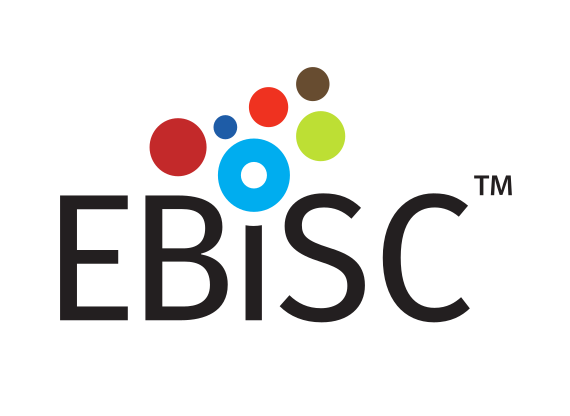If the cells you would like to access are currently listed as unavailable or
you would like information on local partners in USA, Australia, New Zealand or Japan who can support order and delivery,
please get in touch via
Contact@EBiSC.org.
STBCi004-B-1
SFC832-03-06 LRRK2WT/WT C47
Gene-edited iPSC line
A CLIP contains information about a cell line including any
specific third party obligations relating to, for example,
licensing obligations or the donor consent which affect the
use of the cell line.
The EBiSC Access and Use Agreement must be completed along with an individual
Cell Line Information Pack for each line. Complete the EAUA and send to Contact@EBiSC.org
for countersignature. The EAUA must be fully signed before proceeding with your order.
A batch specific Certificate of Analysis will be available to
download once you receive your EBiSC iPSC line.
General#
Cell Line |
|
| hPSCreg name | STBCi004-B-1 |
| Alternative name(s) |
SFC832-03-06 LRRK2WT/WT C47
|
| Cell line type | Human induced pluripotent stem cell (hiPSC) |
| Similar lines |
STBCi026-A-1 (SFC840-03-03 LRRK2-/-D10) STBCi026-A-3 (SFC840-03-03 LRRK2 WT/R1441C H3) STBCi026-A-2 (SFC840-03-03 LRRK2-/-C11) EDi001-A-2 (AST23-1KO-3, AST22-1KO-3, AST-23_SCAKO Clone 3, AST-22_SNCAKO Clone 3) Donor's gene variants: SNCA, SNCA, SNCA, SNCA Donor diseases: Parkinson disease EDi001-A-3 (AST23_SNCAKO Clone 1, AST22-1KO-1, AST23-1KO-1, AST22_SNCAKO Clone 1) Donor's gene variants: SNCA, SNCA, SNCA, SNCA Donor diseases: Parkinson disease |
Provider |
|
| Depositor | StemBANCC (STBC) |
| Distributors |
EBiSC
|
External Databases |
|
| hPSCreg | STBCi004-B-1 |
| BioSamples | SAMEA5859478 |
| Cellosaurus | CVCL_A8X1 |
| Wikidata | Q102114943 |
General Information |
|
| Publications | View all related publications on hPSCreg (1) |
| This EBiSC line can be used for: |
Yes
Research use: allowed
Clinical use: no
Commercial use: no
|
| Subclone of | |
Donor Information#
General Donor Information |
|
| Sex | female |
Phenotype and Disease related information (Donor) |
|
| Diseases | A disease was diagnosed.
|
Donor Relations |
|
| Other cell lines of this donor | |
External Databases (Donor) |
|
| BioSamples | SAMEA104129730 |
hIPSC Derivation#
General |
|
|
The source cell information can be found in the parental cell line
STBCi004-B.
|
|
Reprogramming method |
|
| Vector type | Non-integrating |
| Vector | Sendai virus |
| Genes | |
| Is reprogramming vector detectable? |
No |
| Methods used |
PCR
|
Vector free reprogramming |
|
Other |
|
| Derived under xeno-free conditions |
Unknown |
| Derived under GMP? |
Unknown |
| Available as clinical grade? |
Unknown |
Culture Conditions#
Latest released batch |
|
| Culture medium | mTeSR1 |
| Passage method | EDTA |
| Surface coating | Matrigel |
| O2 concentration | 21 |
| CO2 concentration | 5 |
| Temperature | 37 °C |
The following are the depositor culture conditions, they do not refer to any specific batch.
| Surface coating | Matrigel/Geltrex |
| Feeder cells |
No |
| Passage method |
Enzyme-free cell dissociation
EDTA
|
| Medium |
mTeSR™ 1
|
Characterisation#
Analysis of Undifferentiated Cells
| Marker | Expressed | Immunostaining | RT-PCR | Flow Cytometry | Enzymatic Assay | Expression Profiles |
| NANOG |
Yes |
|
||||
| TRA 1-60 |
Yes |
|
||||
| POU5F1 (OCT-4) |
Yes |
|
||||
| SSEA-4 |
Yes |
|
Spontaneous EB differentiation and qPCR for trilineage markers
Differentiation Potency
In vitro spontaneous differentiation
In vitro spontaneous differentiation
In vitro spontaneous differentiation
Microbiology / Virus Screening |
|
| HIV 1 | Negative |
| HIV 2 | Negative |
| Hepatitis B | Negative |
| Hepatitis C | Negative |
| Mycoplasma | Negative |
Sterility |
|
| Inoculation for microbiological growth | No Contaminants Detected |
| Mycoplasma | Not Detected |
| Viability | Viable post-cryopreservation |
Genotyping#
Karyotyping (Cell Line) |
|
| Has the cell line karyotype been analysed? |
Yes
Karyotype abnormalities: none compared to fibroblasts
Passage number: 40
Karyotyping method:
Molecular karyotyping by SNP array
http:// |
Other Genotyping (Cell Line) |
|
Genetic Modification#
| Disease/phenotype related modifications |
|
